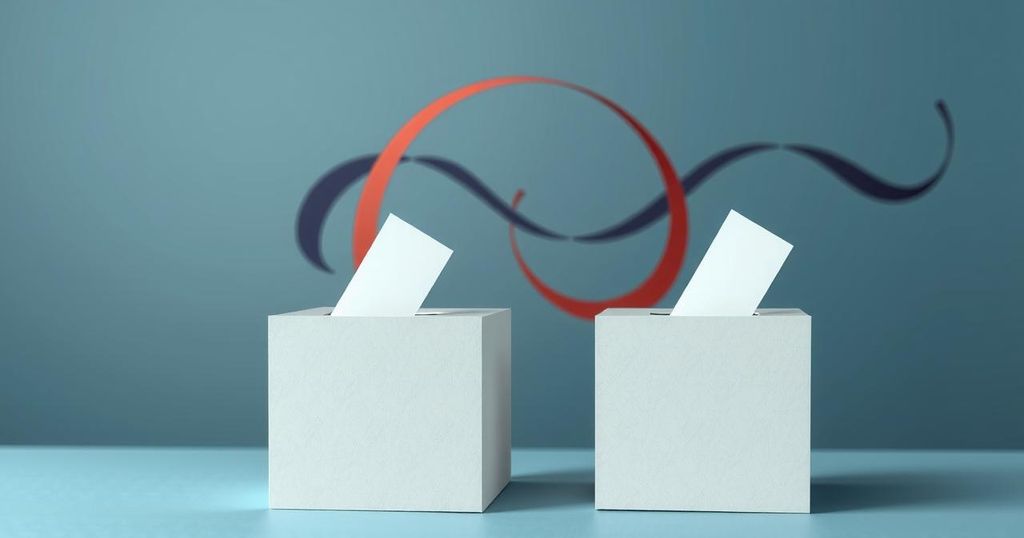Ecuadorian Presidential Runoff: A Battle Between Polarized Ideologies

Ecuador is set for a presidential runoff in April 2025 between incumbent Daniel Noboa and progressive candidate Luisa González, following a closely contested election where both received around 44% of the votes. The election highlights stark ideological divisions, with Noboa advocating neoliberal policies and González promoting social spending. With challenges such as drug violence, high unemployment, and a contentious political climate, the future governance of Ecuador remains uncertain.
In a polarized political context, Ecuador is gearing up for a runoff election in April 2025 between incumbent Daniel Noboa and progressive candidate Luisa González. The February 9, 2025 election saw both candidates secure approximately 44 percent of the vote, with less than a one percent margin separating them. To win outright, a candidate must achieve over 50 percent of total votes or 40 percent with a 10-point lead over the nearest opponent.
Daniel Noboa, a wealthy business magnate and ally of former U.S. President Donald Trump, is campaigning alongside María José Pinto González Artigas for the presidency. He previously won a tightly contested election in 2023 and served out the remainder of the term of former president Guillermo Lasso, who invoked a constitutional provision allowing him to dissolve Congress amid impeachment proceedings.
Luisa González, representing the Revolución Ciudadana party, is contending for the presidency again after facing Noboa in the last election. Her party, associated with former president Rafael Correa, advocates for social funding against Noboa’s neoliberal economic policies characterized by austerity and deregulation. Correa’s presidency is remembered by supporters for reducing poverty and inequality.
The elections have highlighted stark divisions within Ecuador. Noboa’s policies have raised concerns over authoritarian practices, with critics citing his handling of civil liberties, especially regarding his military actions against crime and drug violence. Notably, his controversial arrest of Jorge Glas at the Mexican embassy led to a diplomatic fallout with Mexico.
Furthermore, the electoral landscape featured multiple candidates, including Leonidas Iza of the Pachakutik party, who represents Indigenous interests and positioned himself as part of a broader collective movement. Although Iza captured over five percent of the vote, the persistent influence of racism has limited the success of Indigenous and Afro-Ecuadorian candidates in past elections.
Alongside the presidential race, voters also elected members for the expanded 151-seat national assembly, which witnessed tight competition among various political factions. The results leave future governance uncertain, suggesting the incoming president will face significant challenges including high public expectations and a potentially hostile Congress.
As Ecuador approaches the April runoff, the enduring polarization indicates that whoever emerges victorious will have to navigate complex socio-economic issues and manage a government with divided loyalties, underscoring the difficulties present in achieving consensus and stability.
In summary, Ecuador’s upcoming presidential runoff reflects deep political divisions, with Daniel Noboa and Luisa González bringing contrasting visions to the election. The competition mirrors past elections and highlights the significant challenges the next government will face, including socio-economic instability and polarized public sentiment. The new leader will need to confront these issues while maintaining a fragile alliance in Congress, making the path forward uncertain.
Original Source: nacla.org






